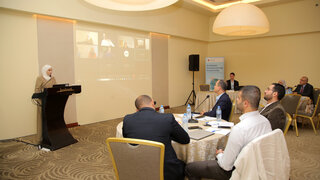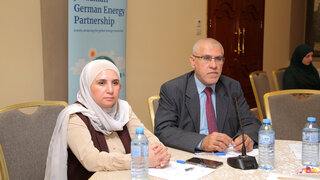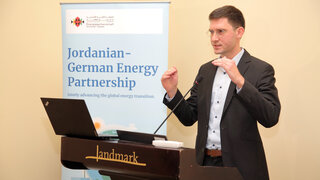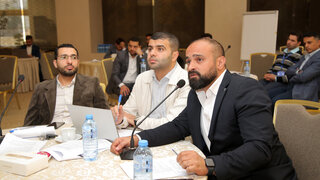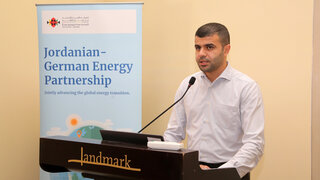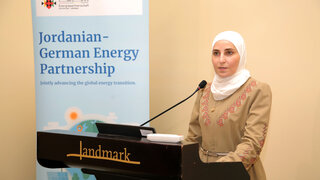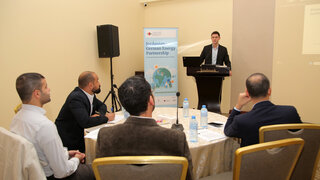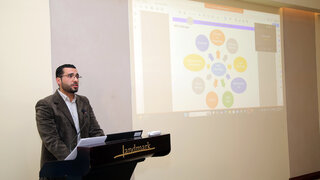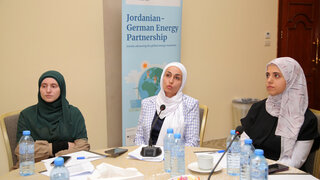TSO Workshop
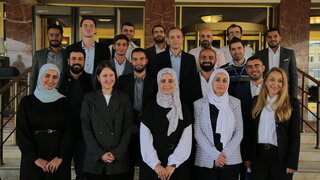
In October 2024, a two-day workshop was held as part of the German-Jordanian Energy Partnership, bringing together grid operators from both countries, representatives from research institutes and industry. The aim was to develop a better understanding of how high-voltage direct current (HVDC) transmission solutions can contribute to grid stability, especially in view of the increasing share of renewable energies.
Workshop topics: The workshop addressed several key issues related to grid stability, particularly with regard to the challenges posed by the increasing integration of renewables. Experiences from the modeling of grid stability and reliability as well as the development of synchronous grids were presented. Other topics included planning and challenges relating to so-called “black starts” (grid restoration after an outage) and the use of HVDC technology.
Experiences from Germany and Jordan:
- Jordan: Colleagues from NEPCO, the Jordanian operator of the electric transmission grid, gave an overview of grid stability in Jordan, focusing on the challenges of frequency and voltage regulation. Later on, it was reported on Jordan's blackout experience in May 2021 and the subsequent restoration of the grid.
- Germany: Experts from Germany, including experts from the TSO Tennet and TransnetBW as well as from the research institute Fraunhofer IEE, shared their experiences in dealing with grid stability and modeling analyses. They emphasized the importance of synchronous grid development and the influence of renewable energies on grid security.
HVDC technology and regional interconnection: Another important part of the workshop was the discussion on HVDC technology. In Jordan, initial plans for HVDC connections are being investigated in order to increase the stability of the grid and enable regional interconnections. Experts from Siemens Energy and from TransnetBW provided insights into current projects and methods for analyzing HVDC technologies.
The workshop promoted the exchange of knowledge and experience between experts from both countries and offered solutions for current and future challenges in electricity grid stability. The importance of training and simulation programs as well as the continuous dialogue on complex topics such as grid stability, black start and HVDC was particularly emphasized. It was agreed that the exchange should be continued in 2025.
